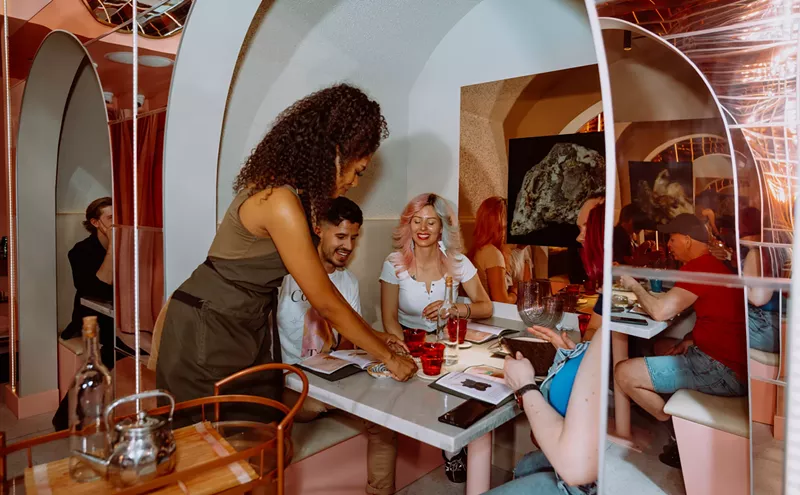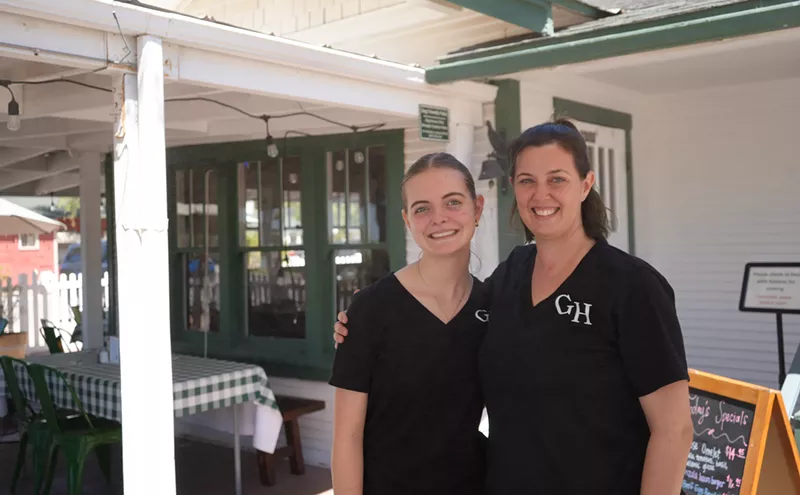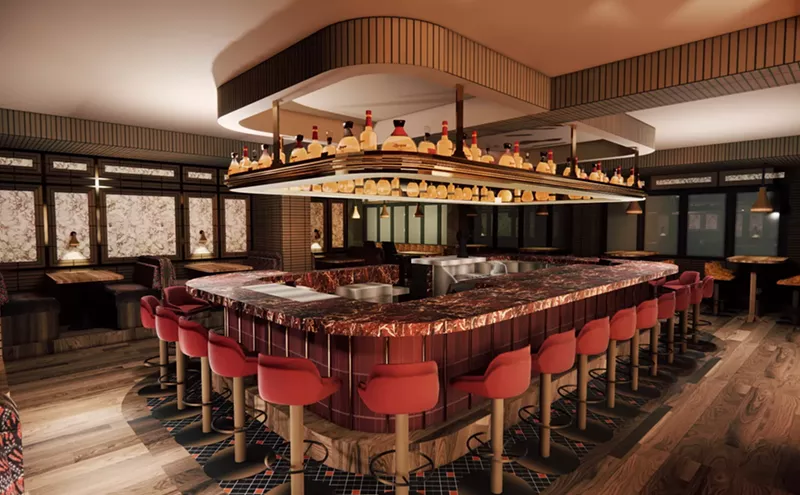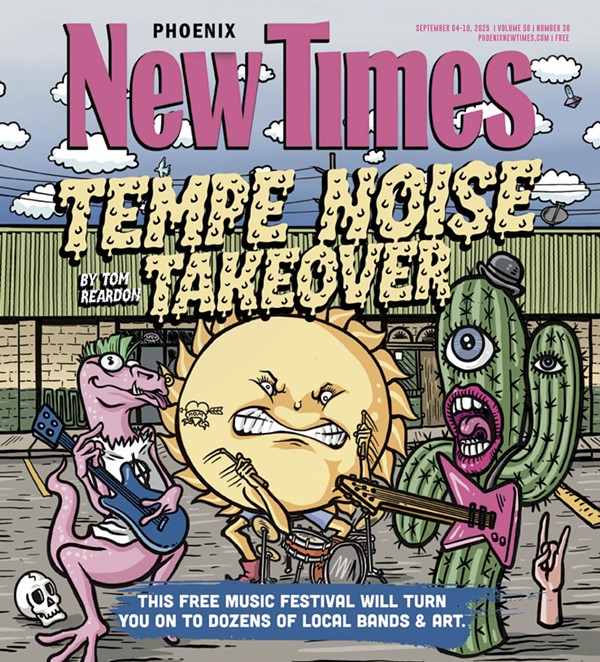Equate it to that time your favorite underground band came out with a smash hit and catapulted into the mainstream. Bummer, right? Or was it a good thing for both the band and the industry?
In this case, the bands that "sold out" are Stumptown and Intelligentsia Coffee, and the "mainstream music" is Peet's Coffee and Tea. In October, Peet's purchased Portland-based Stumptown and bought a majority stake in the Chicago-based Intelligentisa, a move that's sent big waves through the craft coffee industry.
But before you make any judgments, let's go over some history.
Intelligentsia was founded in Chicago in 1995 by Doug Zell, while Stumptown was started in 1998 in Portland by Duane Sorenson. Both companies are considered pioneers in the Third Wave coffee movement, which has brought attention to coffee as a craft as opposed to a commodity. These companies helped bring the ideas of seasonal coffee, direct trade, single origin, and light roast into the spotlight. Not only did they change the coffee buying and roasting landscapes, but they also created compelling retail atmospheres. Both Stumptown and Intelligentsia have become experts at branding, producing quality coffee, and amassing a loyal audience.
For many coffee enthusiasts — myself included — Intelligentsia and Stumptown were a turning point in their perception of what coffee is, and could be. I remember visiting Intelligentsia’s Venice store for the first time in July 2011 and being absolutely blown away by its mad genius. Stumptown and Intelligentsia were providing new experiences and standards for coffee drinkers to look toward. Their persona was exemplified by the local, organic, independent, and farm-to-table movements. People were swearing by these companies’ morals and approaches, so it's understandably saddening to many to see the companies cash out.
But the truth is, it's been happening for a while now. Slowly the die-hard coffee community these companies helped build started to see quality sacrificed for expansion and profits. I can trace it back to when a few ex-Intelligentsia employees left the expanding company and started G&B Coffee and Handsome Coffee (both in Los Angeles), for example. Not only was that pretty crazy in itself, but Oakland-based Blue Bottle, another behemoth in the coffee industry, purchased the wildly successful Handsome shortly thereafter. Then we saw our favorite Third Wave pioneers get into retail stores like Target and Whole Foods with whole beans and bottled cold brew. Their roasts got darker, their coffee buying became more generic, and the quality reflected it.
Yet somehow these companies continued to grow and exude success — they were appealing to the more general public. And though the Peet's purchases are recent happenings, Stumptown was bought into by a Private Equity Firm years prior (in 2011) and Intelligentsia announced it was preparing for a sell-off a month before it announced the sale. The end of the Golden Age for these types of companies had already began its decline. Meanwhile, Peet's Coffee and Tea, a company started in the Bay Area in the late 70s (right before the time Starbucks started), has also working on its expansion via its colossal financial parent JAB Holding Company out of Germany.
But the question remains: Is acquisition in the coffee industry good or bad?
Well, if you're worried the quality at these cult-favorite coffee shops will decline, don't be. Stumptown and Intelligentsia's overall cup profiles may become more generic over time, but the quality shouldn't be affected by the buyout. All three companies have been adamant Stumptown and Intelligentsia will continue to operate independently.
"Peet's and Intelligentsia, along with Stumptown, which we recently signed an agreement to acquire, are highly complementary brands and businesses that collectively satisfy the desires of the new coffee connoisseur," said Dave Burwick, president and CEO of Peet's Coffee & Tea in an announcement about the acquisition.
And more important, these acquisitions will likely improve cup quality in the coffee industry as a whole due to the companies' abilities to invest more at origin, as well as give opportunities to newer coffee companies at the farms and the specialty market.
The coffee industry is and has always been wildly entrepreneurial, and nearly every barista out there yearns to open his or her own company. An acquisition of this type also shows all those hopefuls that there's incentive to do so. Sure, it's a romantic idea to own and operate your own coffee company, but while it does deliver a sense of fulfillment, in reality it is a grueling and emotionally draining line of work. For coffee professionals, the possibility of growing a businesses and eventually walking away from it with equity can only lead to more new businesses. This ensures the consumer a consistent flow of new, exciting, and potentially game-changing coffee companies started by young, hungry coffee professionals.
So is it sad that Stumptown and Intelligentsia may never be the same? Somewhat. But the only constant in the coffee industry is change, and as consumers and professionals that's what's sought after most.

Audio By Carbonatix
[
{
"name": "GPT - Billboard - Slot Inline - Content - Labeled - No Desktop",
"component": "21251496",
"insertPoint": "2",
"requiredCountToDisplay": "2"
},{
"name": "STN Player - Float - Mobile Only ",
"component": "21327862",
"insertPoint": "2",
"requiredCountToDisplay": "2"
},{
"name": "Editor Picks",
"component": "16759093",
"insertPoint": "4",
"requiredCountToDisplay": "1"
},{
"name": "Inline Links",
"component": "17980324",
"insertPoint": "8th",
"startingPoint": 8,
"requiredCountToDisplay": "7",
"maxInsertions": 25
},{
"name": "GPT - 2x Rectangles Desktop, Tower on Mobile - Labeled",
"component": "21934225",
"insertPoint": "8th",
"startingPoint": 8,
"requiredCountToDisplay": "7",
"maxInsertions": 25
},{
"name": "Inline Links",
"component": "17980324",
"insertPoint": "8th",
"startingPoint": 12,
"requiredCountToDisplay": "11",
"maxInsertions": 25
},{
"name": "GPT - Leaderboard to Tower - Slot Auto-select - Labeled",
"component": "17012245",
"insertPoint": "8th",
"startingPoint": 12,
"requiredCountToDisplay": "11",
"maxInsertions": 25
}
]










